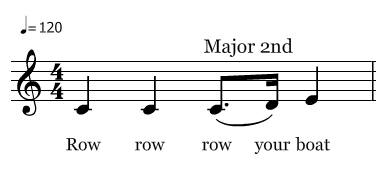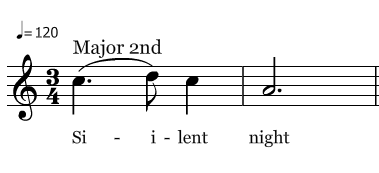There’s nothing worse than getting stuck in a musical rut! Lack of forward progress can turn something as magical as music into a maddening exercise of frustration. Ever find yourself playing the same tune for months and hitting a brick wall? Ever make the same mistakes week over week in jam sessions? It happens to musicians ALL THE TIME and while I don’t claim to have the end all cure for this ailment, I would like to share my personal practice philosophy in hopes that it will help you climb out from the musical doldrums.

These techniques have helped me with classical, jazz, bluegrass, and contemporary playing situations. They are not specific to one genre or instrument and should help anyone from your Tuba playing cousin to the Guitar playing metal head who works at the bank down the street.
So what are The Big 5?
- Technique
- Theory
- Repertoire
- Improvisation
- Performance
1. Technique
The mechanics. The position of your hands or fingers, circular breathing for wind instruments, fingerings of scales, and about a million other items are under the technique umbrella. Working on technique will help you with stamina, rhythmic/harmonic/melodic accuracy, dynamics, and of course the most popular, speed. Slowly practicing with a focus mechanics can be maddening for some and blissful for others. Personally, I love to break passages down and alter the tempo, rhythm, accents, and direction because I can immediately (within 10 minutes of work) notice a difference in my playing. We will explore the finer details of ‘Technique’ with some examples in a later blog post.
2. Theory
Music Theory through practicing is a mental and aural endeavor. The goal is to take those little dots on the page and learn to think of them as more than a simple strike of the key or pluck of the string. As a classical pianist for many years, this was something I simply did not do. I played the notes that were written but didn’t pay attention to the underlying chord progressions. On stringed instruments, I wasn’t thinking about how to play the same passages in different ways up the neck. Next time you learn a tune, take some time to look at an 8 bar section and identify what the underlying chords are. Then look at the notes you are playing over the chords and identify them. Are they all in the major scale? Pentatonic or other scale? Are their accidentals or other notes that don’t seem to fit. Challenge yourself to use those note patterns in different songs with similar chords. Developing those muscles will make you musically aware. As I tell my mother in law, music theory is better for the mind than playing “Words with Friends”…
3. Repertoire
Learning tunes is an important part of developing as a musician and will do as much for your rapid development as anything on this list. Many years ago, I was introduced to Sudoku puzzles. I remember early on, I got stuck on a hard one and couldn’t let it go. After a few days of work, I had hit dead ends, crossed answers out, and the paper had too many holes in it to carry on. Frustrated, I took a step back and worked through some easier puzzles, picking up patterns, strategies, and general tips and tricks along the way. Eventually I got back to the difficult one and found that it was quite easy now. Learning repertoire invokes the same phenomenon. In the long term, someone who spends 8 hours a day for a year on a difficult piece may not play it as well as someone who spent 20 minutes a day on the same piece but also spent time learning other songs. It’s not how long you practice but HOW you practice. Try to learn one tune a week increasing in difficulty every now and again.
4. Improvisation
Communication. “Learning licks and expecting to know how to improvise is akin to memorizing phrases in a French book and expecting to know how to speak French. One can only truly learn language by conversing with other people” – from an earlier post about Jazz Improv legend, Gary Burton. I would agree with Gary that the BEST way to develop your improv skills is to get out and play with other people. There are jam sessions all over Boston that welcome players of all levels. Getting an opportunity to solo and falling on your face is a humbling experience but it conditions your mind and body so that you can do a little better next time. I have been amazed at the results that come with simply not giving up. As for practicing at home, learn what notes or modes fit well under different chord progressions and practice over backing tracks or with the music in your head. Try playing a short 3-4 note motive, then play it starting on a different pitch or beat. Play it backwards. Play it double the speed, half the speed, and so on. Improvisation is the act of taking your vocabulary (notes, modes, scales) and using it to communicate (phrases, motives, etc).
5. Performance
Performance is different from repertoire in that the focus isn’t on a piece you have been actively practicing. On the contrary, for me, it is meant to simulate the feeling of being caught off guard at a jam session. Often times a tune is called out that I haven’t played in months and I need to mentally dig out the chord progression, melody, back-up, and any improv ideas on the spot. No better way to prepare for that common scenario than to play some musical Russian roulette. I keep a list of 50 or so tunes that I know and pick them at random to play at a performance tempo. It keeps you on your toes!
Now that you know what the ‘Big 5’ are, it’s time to talk about keeping yourself accountable. What get’s measured gets accomplished so you need to keep track of your progress. You can notate your practices on lead sheets, music folders, excel, or anywhere else that you look regularly. I have a running google spreadsheet where I outline what I worked on (tunes, tempos, techniques, etc.) so that I can easily see my progress. There is nothing like looking back at what you were doing last month and saying, wow, that is really easy now!
(sneak peek at what I was doing in the Fall)

There is much more to say about each of these techniques and I will dig into them individually (with musical examples) in future posts!
Michael









